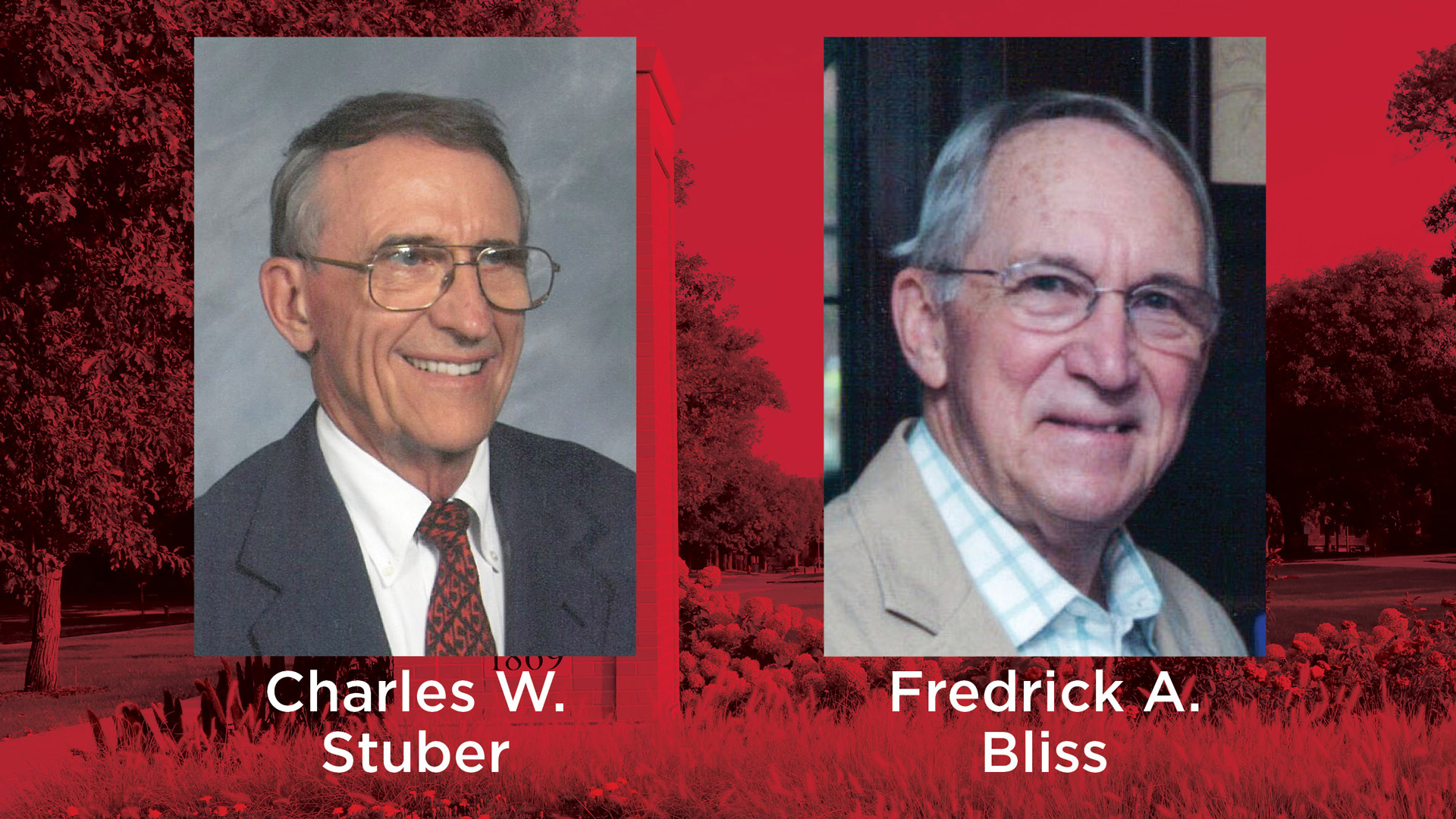
Lana Koepke Johnson | Agronomy and Horticulture
Charles William Stuber and Fredrick A. Bliss, University of Nebraska–Lincoln alumni, received the Department of Agronomy and Horticulture 2022 Alumni Lifetime Achievement Award.
This award is the highest honor bestowed upon graduates of the Department of Agronomy and Horticulture who have made significant contributions to their community, state and nation through professional service, public service and/or civic engagement.
Stuber is considered a pioneer of quantitative genetic mapping and marker-assisted selection in maize. His achievements include the development of genetic marker systems used in maize and adapted in numerous other crops, the first methods to identify quantitative trait loci and the creation of new breeding methods that integrated molecular markers into applied breeding. His work was instrumental in creating the foundation for modern plant breeding that relies heavily on combining genetic marker information with field evaluations of quantitative traits.
Stuber received his Bachelor of Science degree with distinction in technical science in agriculture from the University of Nebraska–Lincoln in 1952. After college, he served as a lieutenant in the United States Navy until 1956.
In 1961, he received his master’s degree in plant breeding and genetics from the University of Nebraska–Lincoln. He worked in wheat breeding with John Schmidt in the Department of Agronomy.
Stuber then enrolled at North Carolina State University and completed his Ph.D. in genetics and experimental statistics in 1965. In 1962, and before he finished his doctoral degree, Stuber was hired as a research geneticist with the U.S. Department of Agriculture Agricultural Research Service in Raleigh, North Carolina, to conduct statistical genetics experiments in corn with the long-term goal of improving breeding methods for quantitative traits. He remained with the USDA-ARS for his entire career until his retirement in 1998.
He also held a joint appointment as a professor in NC State Department of Genetics.
Stuber returned to a faculty position at NC State on a part-time basis in 2006 to develop the Center for Plant Breeding and Applied Plant Genomics in the College of Agriculture and Life Sciences. He retired again in 2019.
Bliss majored in agronomy and received his Bachelor of Science degree with distinction from Nebraska in 1960.
He completed his Ph.D. in 1965 at the University of Wisconsin–Madison Department of Horticulture studying under Warren H. Gabelman, one of the leading horticultural plant breeders of the time. His research focused on cytoplasmic-genic male sterility in table beets, a trait still used today for development of commercial F1 hybrids.
Bliss held a range of positions including teacher and researcher at two land grant universities, chair of a university department and research administrator at a major vegetable seed company throughout his nearly 40-year career.
In 1966, he joined the Department of Horticulture faculty at UW–Madison. In addition to teaching, public service and breeding self-pollinated vegetables, he worked as part of a UW U.S. Agency for International Development team building the then new University of Ife in Nigeria. He also worked in research and development projects globally, including consulting work in Nigeria, Somalia, Honduras and Brazil.
From 1988 to 1998, Bliss was a professor and the first Will W. Lester Endowed Chair in the Pomology Department at the University of California, Davis. He taught and mentored graduate students and researched the genetic improvement of fruit crops. He served as department chair for three years and chair of the Plant Biology Graduate Group for two years.
Bliss joined Seminis Vegetable Seeds, later Monsanto, as director of Worldwide Breeding in 1998 and was responsible for leading 115 vegetable breeders. He held senior director positions before retiring in 2010.
He was a member of the Scientific Advisory Panel for BeanCAP, RosBREED2 and the Integrated Breeding Platform Generation Challenge Program. He was a consultant with the Food and Agriculture Organization of the United Nations on the Global Initiative for Plant Breeding and a consultant to the Washington Tree Fruit Research Commission.
Through his work with FAO and the Bill & Melinda Gates Foundation, Bliss has been particularly passionate about developing talent in plant breeding. He worked on a study at UC Davis to survey information about the education and preparation of future plant breeders.
Full biographies of award recipients are available at https://agronomy.unl.edu/alumni-lifetime-achievement-award-2022
The award was founded in 2016 to recognize alumni who have enhanced the reputation of the department and the university by distinguishing themselves in their careers. Honorees are selected by the Agronomy and Horticulture Alumni Advisory Council.
More details at: https://go.unl.edu/fkz9